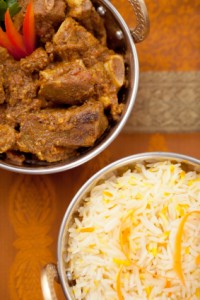 Goat meat can be a delicious, healthy, and affordable addition to your pantry, but there is no denying that goat doesn’t cook up quite like chicken, pork, or beef. Done incorrectly, goat meat can be gamey, fatty, and tough. Done right, however, goat can be one of the most delicious meats on the planet.
Goat meat can be a delicious, healthy, and affordable addition to your pantry, but there is no denying that goat doesn’t cook up quite like chicken, pork, or beef. Done incorrectly, goat meat can be gamey, fatty, and tough. Done right, however, goat can be one of the most delicious meats on the planet.
Cooking goat the right way isn’t rocket science. There is a bit of a knack to doing it, but you don’t have to go to culinary school to get the knack. Instead, just follow these ten tips for cooking with goat to ensure delicious, tender dishes every time.
1. Be smart with your butchering and purchases
Getting the right meat at the start will help you serve up a great meal. You want to aim for goat meat from young goats (six to twelve months old) whenever you can. As goats age, their meat becomes tougher. If you must use meat from older goats, watch out for butchering females in heat, as their meat will be very tough.
2. Give yourself plenty of time
Goat meat is more tender and flavorful if it is cooked slowly. Rushing to whip up a meal will leave you with a tougher end product, and it also increases the chances that you’ll dry out the meat. When it comes to goat, think slow roasts, long simmers, or a day stewing in the crockpot.
3. Turn down the heat
As a lean meat, goat can dry out quickly at high heat, stripping it of flavor and tenderness. Turn down the heat and cook it more slowly to lock in flavor and ensure a smooth, tender finish for the meat.
4. Hold the salt
It’s almost instinctive to salt meat on its way into the pan, but you don’t want to do that with goat. Salt draws the juices of the meat to the surface, making it more likely that you’ll end up with dried-out goat meat by the time you’re done.
More Practical Information on Self-Reliant Living…
5. Marinades matter
If you’re planning to roast or grill your goat meat, you will quickly find out that marinades do matter! Many people read recipes that call for overnight marinades and think an hour or two will cut it. Not true! A good long marinade is a real blessing of flavor, moisture, and tenderness for goat meat.
6. Baste away
Basting is another trick to keep goat meat moist throughout the cooking process. You can either save some of your original marinade or make up a light olive oil and butter baste to lock moisture in without significantly altering the taste of your dish.
7. Feel free to add fat
Adding fat to goat meat will help it stay tender and moist, particularly if you are cooking ground goat in a skillet or frying up steaks. A bit of olive oil, avocado oil, lard, or bacon fat will do the trick.
8. Consider covers and wraps
Covered dishes and wrapped meat preparations will protect your goat and lock in moisture. Simmering with a cover or roasting in an oven bag can make a big difference in the final taste. When grilling, you may also want to use a foil tray under kebabs to help collect the juices, giving you instant basting sauces and preventing dried-out or tough kebabs.
9. Watch it carefully as it finishes
When it comes to burgers, steaks, and other small cuts of goat, the finishing minutes can be critical. Goat’s lean nature makes it finish more quickly than beef or chicken, so it can be easy to overcook, particularly when you aren’t looking at a lengthy cook time. Watch it closely and consider turning down the heat for the end of the process to ensure a smooth finish for your meal.
10. Let it rest
Last but not least, let your goat rest. Like all other meats, the proteins set during cooking and push moisture to the middle of the cut. Letting the meat set will help the juices redistribute themselves so that you have a moister and more tender cut, something especially important for meats that can dry out like goat. Thus, after cooking, place your goat on a warm plate and cover it with foil to rest. Steaks and burgers should rest two to five minutes, while a roast should rest about fifteen minutes before serving.
©2012 Off the Grid News
 Off The Grid News Better Ideas For Off The Grid Living
Off The Grid News Better Ideas For Off The Grid Living




